This is an old post from Political Animal, but with the continued controversy on this site about whether the administration did or didn't lie us into war, I think it might be useful to have it here for reference.
MANIPULATING INTELLIGENCE....Did the Bush administration mislead the country during the runup to the Iraq war? It's true that they turned out to be wrong about a great many things, but that doesn't answer the question. It merely begs it. Were they sincerely wrong, or did they intentionally manipulate the intelligence they presented to the public in order to mask known weaknesses in their case?
The case for manipulation is pretty strong. It relies on several things, but I think the most important of them has been the discovery that the administration deliberately suppressed dissenting views on some of the most important pieces of evidence that they used to bolster their case for war. For future reference, here's a list of seven key dissents about administration claims, all of which were circulated before the war but kept under wraps until after the war:
1.The Claim: Ibn al-Shaykh al-Libi, an al-Qaeda prisoner captured in 2001, was the source of intelligence that Saddam Hussein had trained al-Qaeda members to use biological and chemical weapons. This information was used extensively by Colin Powell in his February 2003 speech to the UN.
What We Know Now: As early as February 2002, the Defense Intelligence Agency circulated a report, labeled DITSUM No. 044-02, saying that it was "likely this individual is intentionally misleading the debriefers." Link. This assessment was hidden from the public until after the war. Colin Powell's former chief of staff, Larry Wilkerson, says "We never heard about" the DIA assessment prior to Powell's UN speech. Link.
2.The Claim: An Iraqi defector codenamed "Curveball" was the source of reporting that Saddam Hussein had built a fleet of mobile biowarfare labs. Curveball's claims of mobile bio labs were repeated by many administration figures during the runup to war.
What We Know Now: The German intelligence officials who handled Curveball told the CIA that he was not "psychologically stable" and that his allegations of mobile bio labs were second hand and unverified. Link. The only American agent to actually meet with Curveball before the war warned that he appeared to be an alcoholic and was unreliable. However, his superior in the CIA told him it was best to keep quiet about this: "Let's keep in mind the fact that this war's going to happen regardless of what Curveball said or didn't say, and the powers that be probably aren't terribly interested in whether Curveball knows what he's talking about." Link. This dissent was not made public until 2004, in a response to the SSCI report that was written by Senator Dianne Feinstein. Link.
3.The Claim: Iraq had purchased thousands of aluminum tubes to act as centrifuges for the creation of bomb grade uranium. Dick Cheney said they were "irrefutable evidence" of an Iraqi nuclear program and George Bush cited them in his 2003 State of the Union address.
What We Know Now: Centrifuge experts at the Oak Ridge Office of the Department of Energy had concluded long before the war that the tubes were unsuitable for centrifuge work and were probably meant for use in artillery rockets. The State Department concurred. Link. Both of these dissents were omitted from the CIA's declassified National Intelligence Estimate, released on October 4, 2002. Link. They were subsequently made public after the war, on July 18, 2003. Link.
4.The Claim: Saddam Hussein attempted to purchase uranium yellowcake from Africa as part of his attempt to reconstitute his nuclear program. President Bush cited this publicly in his 2003 State of the Union address.
What We Know Now: The primary piece of evidence for this claim was a document showing that Iraq had signed a contract to buy yellowcake from Niger. However, the CIA specifically told the White House in October 2002 that the "reporting was weak" and that they disagreed with the British about the reliability of this intelligence. Link. At the same time, the State Department wrote that the documents were "completely implausible." Link.
Three months later, in January 2003, Alan Foley, head of the CIA's counterproliferation effort, tried to persuade the White House not to include the claim in the SOTU because the information wasn't solid enough, but was overruled. Link. Five weeks later, the documents were conclusively shown to be forgeries. Link. In July 2003, after the war had ended, CIA Director George Tenet admitted publicly that that the claim should never have been made. Link.
5.The Claim: Saddam Hussein was developing long range aerial drones capable of attacking the continental United States with chemical or biological weapons. President Bush made this claim in a speech in October 2002 and Colin Powell repeated it during his speech to the UN in February 2003.
What We Know Now: The Iraqi drones had nowhere near the range to reach the United States, and Air Force experts also doubted that they were designed to deliver WMD. However, their dissent was left out of the October 2002 NIE and wasn't made public until July 2003. Link.
6.The Claim: Administration officials repeatedly suggested that Saddam Hussein had substantial connections to al-Qaeda. Even after the war, George Bush said, "The reason I keep insisting that there was a relationship between Iraq and Saddam and al Qaeda [is] because there was a relationship between Iraq and al Qaeda." Dick Cheney said the evidence of a relationship was "overwhelming."
What We Know Now: As early as September 21, 2001, President Bush was told by the CIA that there was "scant credible evidence that Iraq had any significant collaborative ties with Al Qaeda." In fact, according to Murray Waas, "Bush was told during the briefing that the few credible reports of contacts between Iraq and Al Qaeda involved attempts by Saddam Hussein to monitor the terrorist group. Saddam viewed Al Qaeda as well as other theocratic radical Islamist organizations as a potential threat to his secular regime." Link.
7.The Claim: Adnan Ihsan Saeed al-Haideri, an Iraqi defector, told the CIA that he had secretly helped Saddam Hussein's men bury tons of biological, chemical and nuclear weapons. After this information was passed to the New York Times by Ahmed Chalabi, it was cited in "A Decade of Deception and Defiance" as evidence of Iraq's continued WMD programs.
What We Know Now: Al-Haideri told his story while strapped to a polygraph. He failed. The CIA knew from the start that he had made up the entire account, apparently in the hopes of securing a visa. Link.
This is not a comprehensive list, so feel free to add other specific examples of suppressed intelligence in comments.
One final word on this: the issue here is not who was right and who was wrong, or even whether the overall weight of the evidence was sufficient to justify the war.
It would have been perfectly reasonable for the White House to present all the evidence pro and con and then use that evidence to make the strongest possible case for war. But that's not what they did. Instead, they suppressed any evidence that might have thrown doubt on their arguments, making it impossible for the public to evaluate what they were saying. In fact, by abusing the classification process to keep these dissents secret, they even made it impossible for senators who knew the truth to say anything about it in public.This is not the way to market a war. It's certainly not the way to market a war that requires long term support from citizens in a democracy. But that's how they marketed it anyway.
I like this post because it gets to the heart of the definition of a chickenhawk that most of us opponents of this administration have in mind when discussing the Iraq war (rather than the caricatured strawman "No one who hasn't served in the military has a right to advocate war" argument proffered by Hurtleg & Comrades). In this context, a chickenhawk is someone like Five Deferments (who had better things to do) or Lucianne's Baby Boy (whose family couldn't do without the income), who are ferocious advocates of wars of choice, but who, paradoxically, don't really appear to take war all that seriously. We're obviously not saying that Five Deferments and President Champagne Unit should leave the White House and enlist, and I don't think I'd feel much safer with Private Goldberg over in Iraq either. Is every war supporter who hasn't served a chickenhawk? No. Do some lefties seem to imply that they are? Sure. Still, it's perfectly legitimate to ask Five Deferments why his "other things to do" when America was fighting her Most Dangerous Enemy in History were more important than everyone else's "other things to do" now that we're fighting the Most Dangerous Enemy in History again.


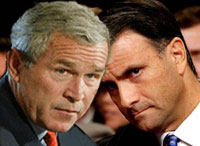
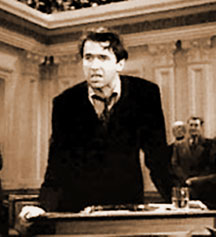



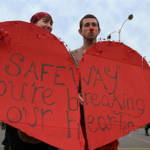


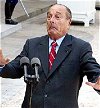
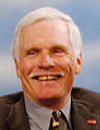
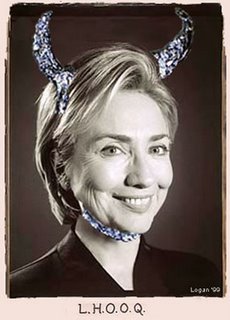

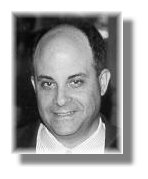
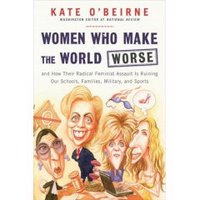
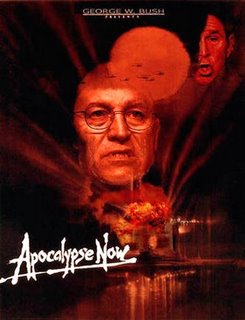


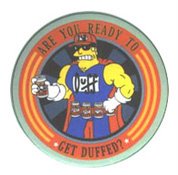


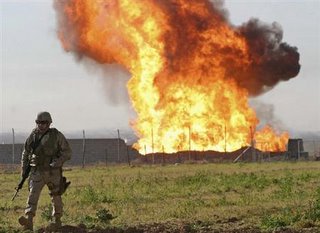
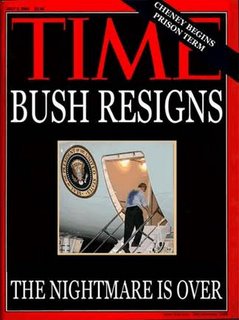
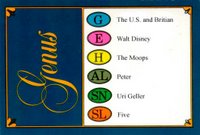 Who invaded Spain in the Eighth Century ?
Who invaded Spain in the Eighth Century ?